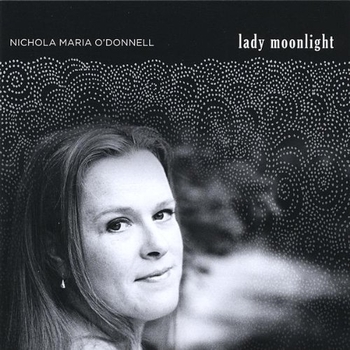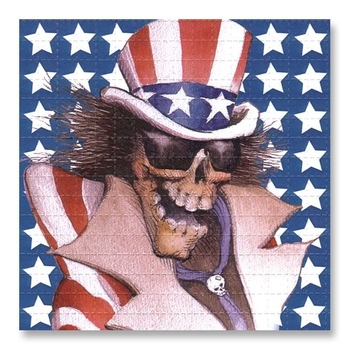
The anniversary of the moon landing last week got me thinking about David Bowie’s classic song of space travel. I knew there were songs, both by Bowie and by others, which continued the story, and the idea for this post was born. I began to research, and I discovered that a fairly coherent story emerges when the songs are put together.
Surely, I am not the first blogger to put all of this together. I’ve never seen it posted anywhere else, but I can’t imagine that no one else thought of it. So, I wanted to make it original somehow. One way to do that was to find unusual versions of some of the songs. The other way is to hope that my comments will add something new to the conversation.
David Bowie: Space Oddity
[purchase]
Of course, the story begins with Bowie’s Space Oddity. The literal story here is that Major Tom goes up in his spaceship, and vanishes. Just before this happens, Major Tom appears to realize that he is doomed. He asks Mission Control to tell his wife, “I love her very much.” Then, Ground Control loses contact with him. End of story.
But it’s not quite that simple. Maybe there really is no space flight at all. Some of the lyrics suggest that the story is a metaphor for the rise of a rock star celebrity, followed by his sudden disappearance into a haze of drug abuse.
But again, maybe there is a space flight. Major Tom prepares to leave his capsule, and his consciousness is altered by the experience. He reverts to a childlike state of wonder, and then disappears. So maybe his disappearance has a metaphysical explanation.
Bowie poses these questions, but gives no answers. And that probably explains why the story of Major Tom has exerted such a strong pull on other artists, and why Bowie himself keeps retuning to it.
Ray Dylan: Major Tom (Coming Home)
[purchase]
Peter Schilling had a hit with Major Tom (Coming Home) in the 80s. Schilling’s version reflects an 80s fascination with technology, dwelling on the technical details of the prelaunch safety checks. All systems are go, but the outcome is the same; Major Tom disappears, and is presumed dead. But Schilling adds one detail. His Major Tom realizes he is still alive, and says to himself, "Now the light commands, this is my home, I'm coming home."
I have chosen Ray Dylan’s cover of the song. Dylan renders a fairly faithful version, but strips out many of the 80s production tricks found in the original, putting the focus on the song itself. In researching Dylan, I found that his album titles were in a language I had never seen before. These albums include covers of songs in English, and what I presume are original songs in this mystery language. It sometimes looks to me like a variant on German, while I could believe other words are Hawaiian. His Facebook profile is in this same language, but I caught one word which cleared things up. The Language is Afrikaans, which would mean that Ray Dylan is from South Africa. This is all I know about him. If anyone has more information, please leave it in the comments.
K. I. A. featuring Larissa Gomes: Mrs Major Tom
[purchase]
In Mrs Major Tom, we pick up the story from the wife’s point of view. Like everyone else, she had assumed that Major Tom was dead. But now he has returned to her. Unfortunately, he is no the same person he was when he left. Bowie’s hint of a transformative experience is preserved here. “At last you’ve come back, yet still, you’re gone.” All of the possible interpretations of Bowie’s original song are intact here.
K. I. A. is an artist and musician from Toronto. His given name is Kirby Ian Andersen, and he records with a rotating cast of guest musicians. His music combines electronic and acoustic elements. His art takes the form of paintings and sculpture, and explores technological and tribal themes.
Larissa Gomes is an actress. She has had small parts in film and television shows, but has yet to land a starring role. She is also a writer, with a screenplay currently circulating in Hollywood. And she is working on her first solo album.
Happy Rhodes: Ashes to Ashes
[purchase]
David Bowie returned to the story with Ashes to Ashes. Here, we find Major Tom “strung out on heaven’s high”. If the drug narrative is correct, he has hit bottom here. The wife is nowhere to be seen; Major Tom has lost everything. In the metaphysical interpretation, he can no longer function in the real world. And if he is simply a returning astronaut who had an odd experience while in space, Major Tom is now like a homeless veteran who no longer knows how to function in society.
Musically, Happy Rhodes completely reimagined Ashes to Ashes. Despite the dark subject matter, Rhodes created a musical setting of great beauty; thus adding a layer of irony to Bowie’s original.
David Bowie: Hallo Spaceboy
[purchase]
David Bowie’s recording of Ashes to Ashes was produced by Brian Eno. Hallo Spaceboy is a cowrite by the two. Major Tom is never mentioned by name, but this does seem to be him. He has been through some kind of rehab, and now he must build a new identity for himself from scratch. The prospect is both daunting and full of potential.
There have been other Major Tom songs, but these seemed to fit together well. Perhaps, ten years from now, I will be able to present the next five songs in the saga. Stay tuned.
















